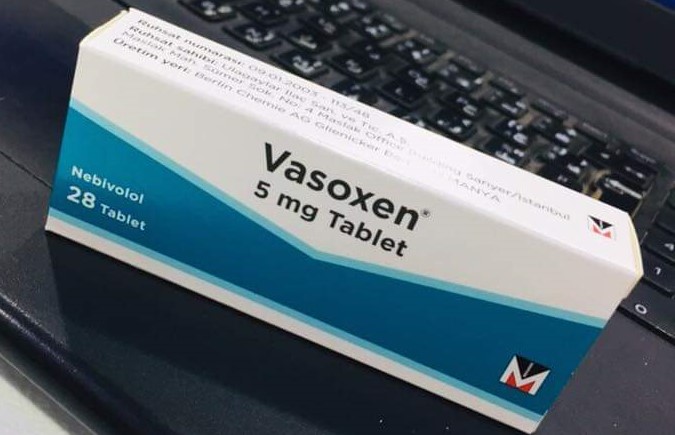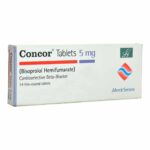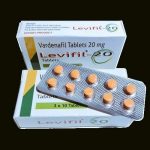Vasoxen: Uses, Dosage, Side Effects, Interactions

Vasoxen is a Turkish brand of Nebivolol hydrochloride (a derivative of Nebivolol) a medication used alone or in combination with other medications to treat high blood pressure. Lowering your blood pressure will help reduce your chance of having a stroke or heart attack.
Vasoxen is in a class of medications called beta-blockers. It works by relaxing blood vessels and slowing heart rate to improve blood flow and decrease blood pressure.
High blood pressure is a common condition and when not treated, can cause damage to the brain, heart, blood vessels, kidneys, and other parts of the body. Damage to these organs may cause heart disease, a heart attack, heart failure, stroke, kidney failure, loss of vision, and other problems. In addition to taking medication, making lifestyle changes will also help to control your blood pressure. These changes include eating a diet that is low in fat and salt, maintaining a healthy weight, exercising at least 30 minutes most days, not smoking, and using alcohol in moderation.
Before taking this medicine
You should not take Vasoxen if you are allergic to it, or if you have:
• a serious heart condition such as heart failure, “AV block” (2nd or 3rd degree), or sick sinus syndrome (unless you have a pacemaker);
• very slow heartbeats;
• severe liver disease; or
• if your heart cannot pump blood properly.
Tell your doctor if you have ever had:
• asthma, bronchitis, emphysema;
• a heart attack;
• problems with circulation (especially in your feet and legs);
• diabetes (taking Vasoxen can make it harder for you to tell when you have low blood sugar);
• a thyroid disorder;
• liver or kidney disease;
• allergies; or
• pheochromocytoma (tumor of the adrenal gland).
Tell your doctor if you are pregnant or plan to become pregnant. It is not known whether Vasoxen will harm an unborn baby. However, having high blood pressure during pregnancy may cause complications such as diabetes or eclampsia (dangerously high blood pressure that can lead to medical problems in both mother and baby). The benefit of treating hypertension may outweigh any risks to the baby.
How to take Vasoxen
All possible dosages and forms may not be included here. Your doctor will tell you what dosage is right for you. Your dose, form, and how often you take it will depend on:
• your age
• the condition being treated
• how severe your condition is
• other medical conditions you have
• how you react to the first dose
Dosage for high blood pressure (hypertension)
• Form: oral tablet
• Strengths: 2.5 mg, 5 mg, 10 mg, 20 mg
Adult dosage (ages 18 years and older)
• The usual starting dosage is 5 mg once per day.
• Your doctor will adjust your dosage based on how you respond to this drug. These dosage adjustments should be at least 2 weeks apart.
• The maximum recommended dosage is 40 mg once per day.
Child dosage (ages 0–17 years)
This medication hasn’t been studied in children and shouldn’t be used by people younger than 18 years.
Special dosage considerations
• For people with severe kidney disease: The recommended starting dosage for people with severe kidney disease is 2.5 mg once per day. Your doctor will increase your dosage slowly if needed. This drug hasn’t been studied in people on dialysis. If you’re on dialysis, your doctor will monitor you more closely.
• For people with liver disease: The recommended starting dosage for people with moderate liver disease is 2.5 mg once per day. Your doctor will increase your dosage slowly if needed. This drug isn’t recommended for people who have severe liver disease.
What are the side effects of Vasoxen?
Vasoxen may cause side effects. Tell your doctor if any of these symptoms are severe or do not go away:
• headache
• tiredness
• weakness
• dizziness
• diarrhea
• nausea
• stomach pain
• difficulty falling asleep or staying asleep
• numbness, burning or tingling in the hands, arms, feet, or legs
Some side effects can be serious. The following symptoms are uncommon, but if you experience any of them, call your doctor immediately:
• chest pain
• slow heart rate
• difficulty breathing
• unusual weight gain
• rash
• swelling of the hands, feet, ankles, or lower legs
Vasoxen may cause other side effects. Call your doctor if you have any unusual problems while taking this medication.
If you experience a serious side effect, you or your doctor may send a report to the Food and Drug Administration’s (FDA) MedWatch Adverse Event Reporting program online (http://www.fda.gov/Safety/MedWatch) or by phone (1-800-332-1088).
What other drugs will affect Vasoxen?
Sometimes it is not safe to use certain medications at the same time. Some drugs can affect your blood levels of other drugs you take, which may increase side effects or make the medications less effective.
Many drugs can affect Vasoxen. This includes prescription and over-the-counter medicines, vitamins, and herbal products. Not all possible interactions are listed here. Tell your doctor about all your current medicines and any medicine you start or stop using.
Examples of drugs that can cause interactions with Vasoxen are listed below.
Depression drugs
If you take Vasoxen and certain depression drugs together, the amount of Vasoxen in your body may get too high. This can lead to increased side effects of Vasoxen. Examples of these drugs include:
Heart drugs
When Vasoxen is used with certain heart drugs, your heart rate can become very slow. Examples of these drugs include:
• Digoxin
• Diltiazem
• Disopyramide
• Verapamil
Irregular heart rhythm drugs
If you take Vasoxen with certain drugs used to treat irregular heart rhythms, the amount of Vasoxen in your body may get too high. This can lead to increased side effects of Vasoxen. Examples of these drugs include:
• Quinidine
• Propafenone
Other high blood pressure drugs
Beta-blockers: These drugs should not be taken with Vasoxen. Taking them together can greatly slow down your heart rate. Examples of beta-blockers include:
- Acebutolol
- Atenolol
- Betaxolol
- Bisoprolol
- Carvedilol
- Esmolol
- Labetalol
- Metoprolol
- Nadolol
- Penbutolol
- Pindolol
- Propranolol
- Timolol
Alpha-blockers: Taking these drugs with Vasoxen can cause an increased risk of low blood pressure when you stand (orthostatic hypotension). This can cause lightheadedness and dizziness. Examples of alpha-blockers include:
• Doxazosin
• Prazosin
• Terazosin
Catecholamine-depleting drugs: Taking these drugs with Vasoxen can greatly slow down your heart rate. Examples of catecholamine-depleting drugs include:
• Guanethidine
• Reserpine
Clonidine: If you’re taking clonidine with Vasoxen but need to stop taking it because your blood pressure is getting too low, your doctor will first stop your Vasoxen treatment for several days before your clonidine treatment is stopped.
When clonidine is stopped, rebound high blood pressure typically occurs. This means your blood pressure can get high again. This can be much worse if Vasoxen is not stopped several days before you stop taking clonidine.
Sildenafil
If you take Vasoxen and sildenafil (Viagra) together, the amount of sildenafil in your body may decrease. This can lead to decreased effects of sildenafil.





